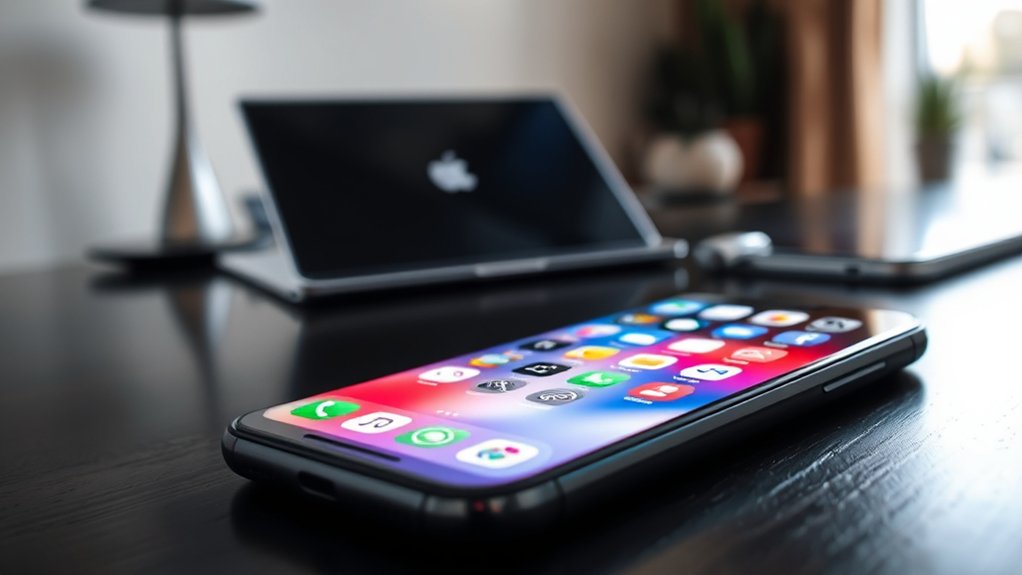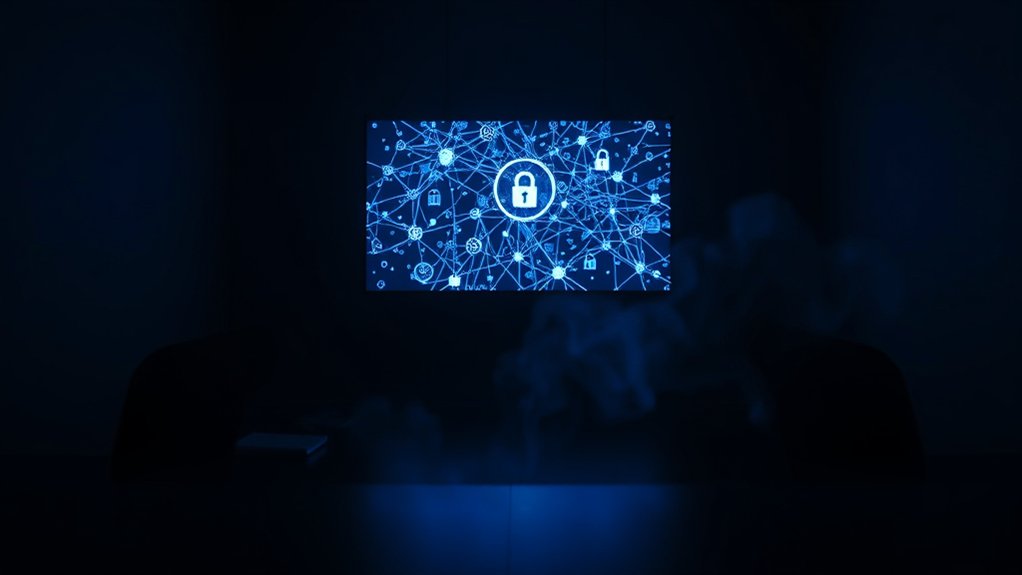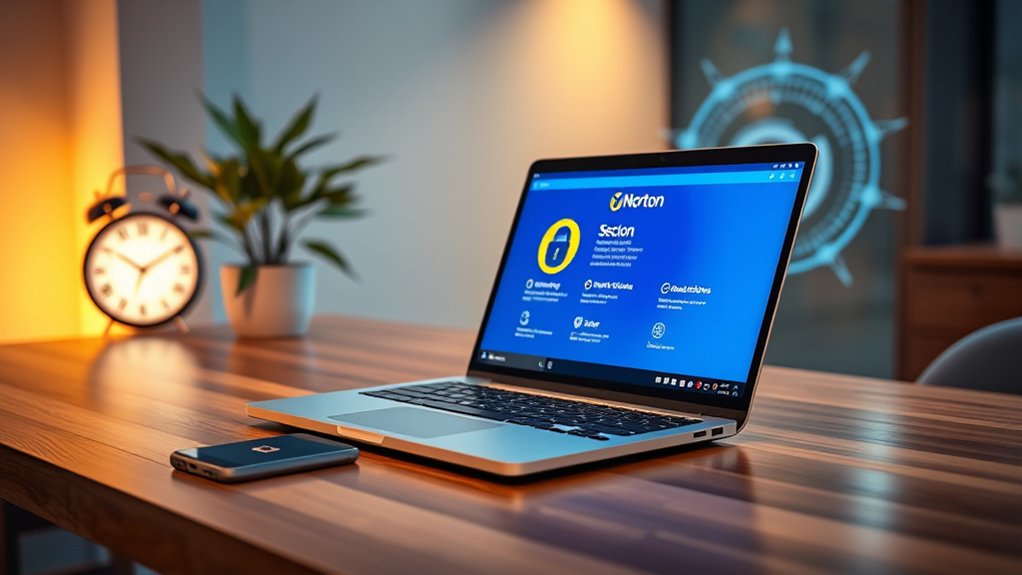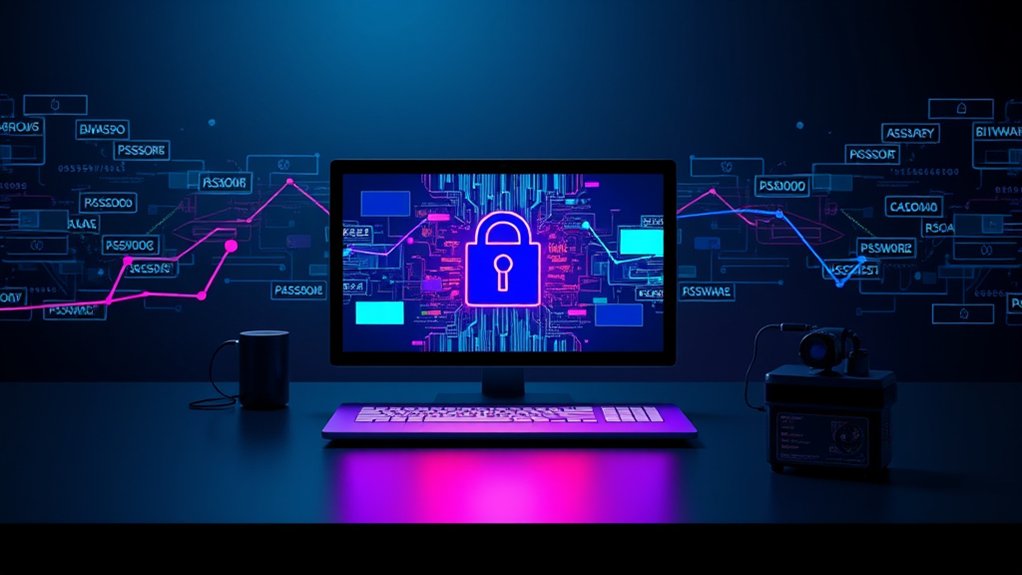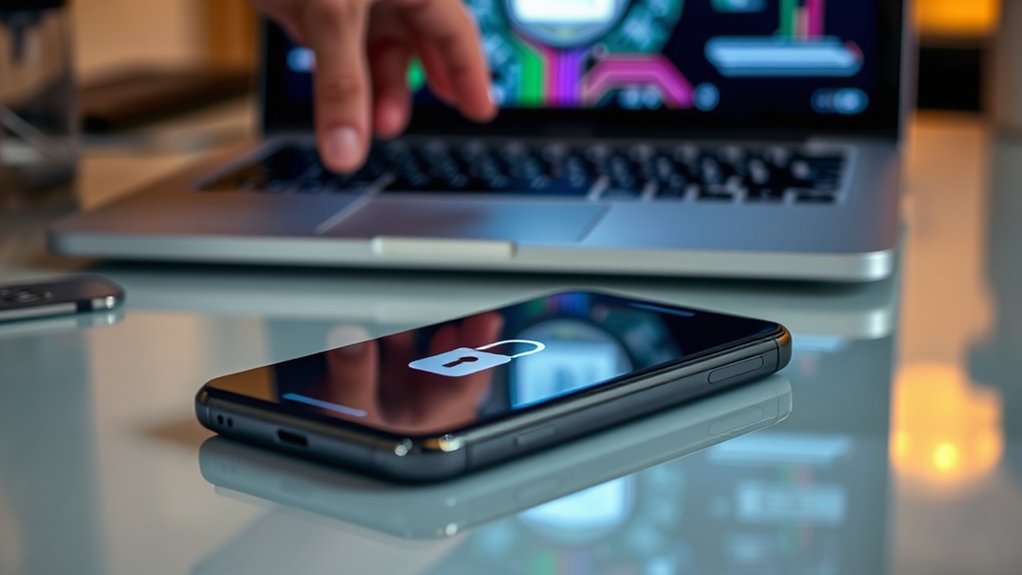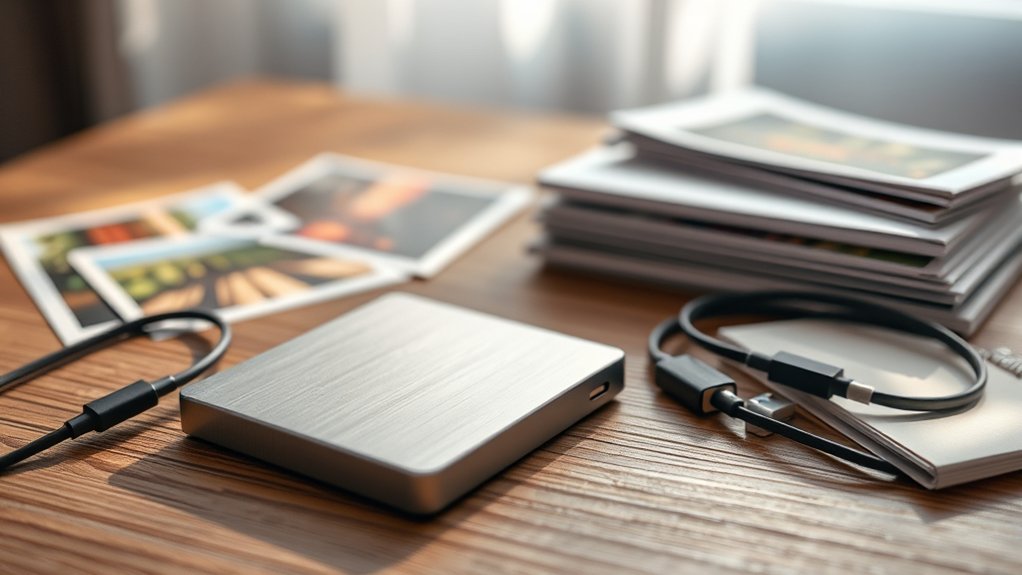To detect spyware on an iPhone, users should observe their device for unusual symptoms. Notable indicators include unexpected battery drain, performance issues, and spikes in data usage. Users are advised to check app permissions, utilize reputable anti-malware applications, and make certain iOS software is current. Monitoring for strange behaviors, such as random pop-ups or sudden app crashes, is likewise critical. Continued vigilance may reveal deeper insights into safeguarding device security and privacy.
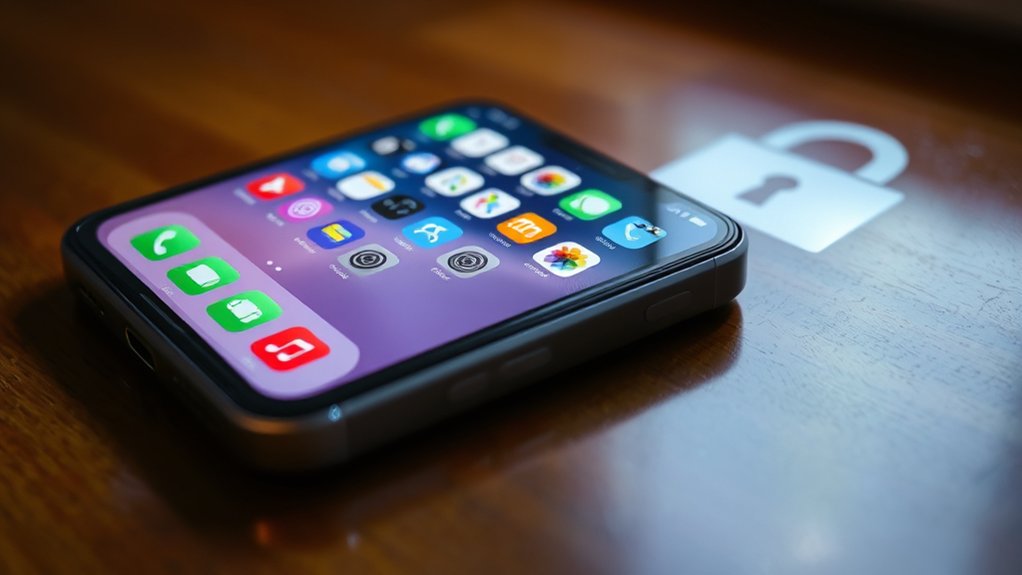
How can individuals determine whether their iPhone has been compromised by spyware? The presence of spyware can manifest through various symptoms that demand attention. Notable indicators include unusual battery drainage, abrupt performance issues, and unexpected spikes in data usage.
For instance, a user might notice significant data consumption without any apparent reason, which often accompanies spyware activities. Moreover, strange behaviors such as random pop-ups, applications crashing unexpectedly, or unfamiliar apps appearing in the recently used app tab may suggest the presence of malicious software.
Various types of spyware, including Pegasus, Stalkerware, and keyloggers, exploit iOS vulnerabilities and track personal information without the user’s consent. Pegasus, recognized for its sophisticated techniques, has particularly raised concerns among cybersecurity experts. Similarly, malware apps disguise themselves as legitimate tools, misleading users into providing sensitive information.
By utilizing methods to detect spyware, users can better protect their devices and personal data. For example, they can utilize built-in iPhone settings to inspect app activities or employ reputable anti-malware applications for thorough scans. Regularly checking for software updates to maintain security is crucial because software updates improve security protections. Additionally, maintaining the habit of using strong passwords helps add another layer of protection against unauthorized access.
Monitoring device activity regularly for abnormalities, such as unusual data usage, remains vital. Users should also scrutinize app permissions, ensuring no suspicious access requests have been granted. Instances of background noise or echoes during phone calls can indicate audio surveillance attempts, reinforcing the need for vigilance. Additionally, the invasive nature of spyware can grant access to personal data like passwords and financial information, making detection imperative.
The impact of spyware can be profound, compromising personal information that includes passwords and financial data. In addition, some spyware can activate the camera and microphone without user knowledge, introducing significant privacy risks. Consequently, prevention strategies become paramount.
Individuals are advised to download apps exclusively from the App Store, utilize strong, unique passcodes, and activate security features like two-factor authentication.
Ultimately, by remaining vigilant and implementing detection and prevention measures, users can mitigate the risks associated with spyware on their iPhones. Regular updates to the iOS software and cautious app usage are vital in maintaining device integrity and personal security.
Frequently Asked Questions
Can My Iphone Be Hacked Remotely Without My Knowledge?
Remote hacking of iPhones is a valid concern, as vulnerabilities exist that can facilitate unauthorized access.
Techniques such as exploiting public Wi-Fi networks and utilizing malicious applications allow hackers to infiltrate devices. Reports indicate that hackers can employ zero-day exploits to bypass security measures undetected.
Moreover, inadequate app permission reviews can invite risks. Therefore, it is crucial that users adopt rigorous security practices to safeguard sensitive information from potential remote intrusions.
What Are Common Signs of Spyware on an Iphone?
Common signs of spyware on an iPhone include abnormal battery drainage, noticeable performance issues, and unusual device overheating.
Users may observe unrecognized applications or suspicious device profiles. Increased data usage or uncharacteristic network activity can likewise indicate spyware presence.
Moreover, warnings arise from unauthorized account access or unusual call behavior, such as background noise.
Experts recommend vigilance, highlighting that these symptoms should prompt immediate investigation into potential spyware involvement.
Is It Legal to Install Spyware on Someone Else’s Phone?
Installing spyware on someone else’s phone is typically illegal without explicit consent from the device owner. Laws vary by jurisdiction, with many countries imposing strict penalties for unauthorized surveillance, including fines and potential imprisonment.
For example, a legal analyst noted that violations often lead to civil lawsuits for emotional distress, exacerbating reputational damage.
Ethical considerations further complicate this practice, as many experts advocate for open communication and transparency over intrusive monitoring methods.
How Often Should I Check for Spyware on My Device?
Regular monitoring for spyware is vital, with recommended checks conducted monthly to assess app permissions and overall device activity.
Experts suggest reviewing device performance post-iOS updates, as new vulnerabilities may arise. High data usage warrants immediate investigation, as it often indicates potential spyware presence.
Furthermore, security apps and permission reviews improve protection. With mobile threats comprising 40% of all detected risks, consistent vigilance is important to safeguard personal information effectively.
Will Resetting My Iphone Remove Any Spyware?
Resetting an iPhone can potentially remove spyware by erasing all data; nonetheless, effectiveness varies.
According to cybersecurity experts, advanced spyware, such as Pegasus, may survive factory resets. Users should back up their data beforehand, as a reset eliminates all apps and settings.
Post-reset, monitoring device behavior remains essential for detecting any lingering threats. As a result, although a reset is a viable option, it does not guarantee complete removal of all spyware types.
